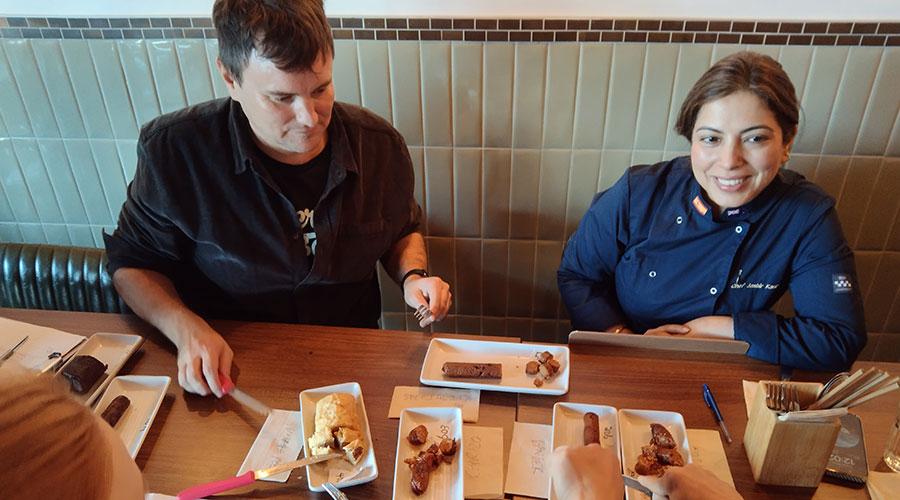Creating a Vegan Niche Business

Ian Duffield ventures into the smaller townships of the country to explore the rise in vegan hospitality business in areas outside of our urban centres
“If you can dream it, you can do it.” Walt Disney
Travelling through Aotearoa can be a frustrating experience. How many times have you rolled into a small provincial town, possibly with other empty tummies in the car, and wondered where your next vegan meal was located? Happycow and other spots on the internet may offer answers, but opening times, cash flow, or sheer practicalities can just as often see you in a supermarket, making do with hummus and crackers.
The main centres are less of a problem; places like Aunty Meena’s in Wellington, Sunflower Restaurant in Auckland, and Welcome Café in Christchurch have been havens for vegans from the earliest days. Fortunately, the market soon followed the trend, and the sprinkling of restaurants and cafés which had previously offered vegetarian dishes began adding vegan options to cater for our burgeoning group. Today the café scene is noticeably different; there are many vegan (and almost vegan) businesses flourishing not only in the main centres, but also dotted throughout the towns of Aotearoa.
The dream
So what inspires entrepreneurs to invest huge amounts of time and effort, and often their savings, to set themselves up catering for this small, select, and often fussy group?
And what are the key ingredients for creating a successful vegan business?
The dream, the personal vision, is invariably the crucial ingredient in the vegan business potpourri. Angela Fuller of Power Plant Organics in Whangārei describes it like this: “When Jasmine, Mark, and I opened back in November 2017, our goal was to normalise vegan food and to show people how super delicious and nutritious it can be. We also wanted to create a safe haven for people with allergies. All our food is gluten-free, dairy free,100 per cent plant-based and made in-house with love.”
Of course, vegan businesses may begin with multiple goals, such as a desire to transform one’s ethics and skills into employment, or as a way of creating employment with friends and whānau, or even triggered by a loathing of an unappreciative and overbearing boss. A common goal seems to be providing nourishing food for vegans and others with allergies. The challenges of coeliac sufferers and those with other allergy issues can often be solved in combination with vegan treats. Moa Bakery Cakery had its genesis when owner Jane Thompson arrived in Oamaru and found no source of vegan allergy-free food. On a different tangent, Zee Tana, in Palate Wholesome Collective, celebrated Māori Language Week by introducing his customers to vegan Māori dishes.
However, any enterprise, vegan or otherwise, requires some hard-headed practical skills to ensure success. Some vegan start-ups begin with the entrepreneur’s dreams and little experience in running a café or restaurant. Others come from a business background, with previous café experience, and their vegan vision flourishes in tandem with the business. And there are many variations along this pathway.
Starting up
It is standard practice to begin any commercial venture with a plan and budget forecasts. In fact, if you are borrowing from a bank to help with finance, the lender will make these budgeted projections mandatory. One side of a budget forecasts revenue based on an estimate (or sometimes both pessimistic and optimistic estimates) of the number of, say, lattés and other drinks which the owner expects (not just hopes) to sell. A similar calculation is projected for food sales, and perhaps miscellaneous items which cafés sell, such as coffee mugs, paintings, and articles of clothing. Revenue projections are a ‘best guess’ scenario, although careful inquiries of similar businesses can produce realistic calculations.
Revenue is juxtaposed against costs. Budget advisors customarily split these into fixed costs and running costs. Fixed costs, including setup costs, vary widely depending on owner preference and willingness to spend on the initial outlay. Setup costs for the café kitchen offer a little scope for flexibility. Many of the utensils, barista machines, chillers, and cookers could be considered essential spending, although some owners begin with limited funds and consequently purchase second-hand equipment, which they hope to upgrade as business cash flows improve. If you purchase an existing business, the cost price may include equipment, as well as goodwill.
Furnishing
Designing the interior and adapting the outer facade of the building gives aspiring entrepreneurs the chance to create an ideal setting for both customers and staff. Some popular — and successful — vegan cafés begin with quite humble furniture. Whangarei’s Palate Wholesome Collective has furniture which had past lives as pallets and school equipment. Together with pot plants and herbs growing in and around the seating, it creates a relaxed atmosphere for enjoying coffee and delicious vegan kai. Some cafés utilise the wall space to display and sell paintings for friends and contacts. Logan McLean, in Waipu, has distinctive driftwood animal sculpture adorning its walls.
Other owners extend their vision — and budgets — and utilise their flair to create the right decor and ‘feel’ for their establishment. East Street Café and Bar in Nelson includes in its interior colourful tiles and the prolific use of hanging plants to create an atmosphere that appeals to vegans and non-vegans alike.
Lemonwood Eatery in Oakura has an interior which would be the envy of many an expensive design business. Barbara Olsen-Henderson, the owner, created the unique feel of Lemonwood by designing her own floral wallpaper, contrasted by some walls painted in a deep magenta. The space is furnished with vintage and retro lampshades with the use of mannequins above polished wooden flooring. The resulting atmosphere and sense of spaciousness invites customers to linger over their meals.
Most vegan businesses can do little about their location, but the exterior facade of the café can be an important magnet for customers. MOA Bakery Cakery draws attention with a charming colonial-style verandah fronting a building of warm Oamaru stone.
Number crunching
Some running costs can be estimated with a high degree of accuracy. Wage costs used to be quite exact items, but the effects of Covid-19, and government assistance to partially cover the effect of lockdowns has complicated this situation. Rent (or perhaps leasing costs) is often considered as definite. But finding the rent, on a weekly basis, can be a killer. Rent for café-sized space in a provincial or country town can set the owner back $500 rounding up to $1000 or more per week, depending on the location in the CBD, or suburb. That requires sales of a multitude of lattés to cover your first outlay (remembering, too, that many business owners may have to cover two lots of weekly rent, firstly for the business and then for the owner’s abode).
Several businesses have found it necessary to go beyond the vegan component in an effort to boost revenue. For example, coffee on the go is a vital part of any café’s armoury and a number of otherwise vegan cafés will compromise on the problem of customers demanding cow milk in their lattés. This is viewed as a means through which to draw non-vegan customers into the business for a drink and, importantly, for a possible sampling of vegan food, which many (especially male) Kiwis initially resist.
Other costs which may not have been factored into the budget by aspiring owners would include interest payments on loans, accountancy fees, security and insurance costs, power bills, and variable items associated with rental or leasing arrangements, like water charges. Cafés are also charged for Council inspections which monitor health regulations and, if standards begin slipping, more frequent Council inspections and resulting payments are required. And there are always GST returns to file every taxable period.
Dream it — Do it
Those who start a small business from scratch, and turn it into a successful venture may be looked on with envy by those who rarely see the hours of unrelenting work which brought everything, and keeps everything together. As Vaughn David in “” wryly notes in his business book Covid Schmovid: “Owning your own business gives you the complete freedom to work every hour of every day.”
But the continuing achievements, and sheer longevity of some of our favourite cafés and restaurants, should give inspiration to anyone hoping to emulate these pioneers; certainly there are gaps in the vegan provincial network for those with the necessary vision and skills.
Aotearoa Vegan and Plant Based Living Magazine
This article was sourced from the Autumn 2022 edition of The Vegan Society magazine.
Order your own current copy in print or pdf or browse past editions.
Disclaimer
The articles we present in our magazine and blog have been written by many authors and are are not necessarily the views and policies of the Vegan Society.
Enjoyed reading this? We think you'll enjoy these articles:
Vegan Whispers in our Childhood Reading?
Vegan Whispers in our Childhood Reading? Ian Duffield dives into the canon of classic children’s books to explore the way animals have …
The Humanity Trigger
The Humanity Trigger First-time author Mark Fitzpatrick, AKA Mark Humanity, shares his war stories as a veteran hunt saboteur in Europe, along …
NZ’s Best Vegan Bangers
NZ’s Best Vegan Bangers Claire Insley, the Vegan Society’s media spokesperson, heads along to the NZ Vegan Sausage Awards, an annual celebration …




